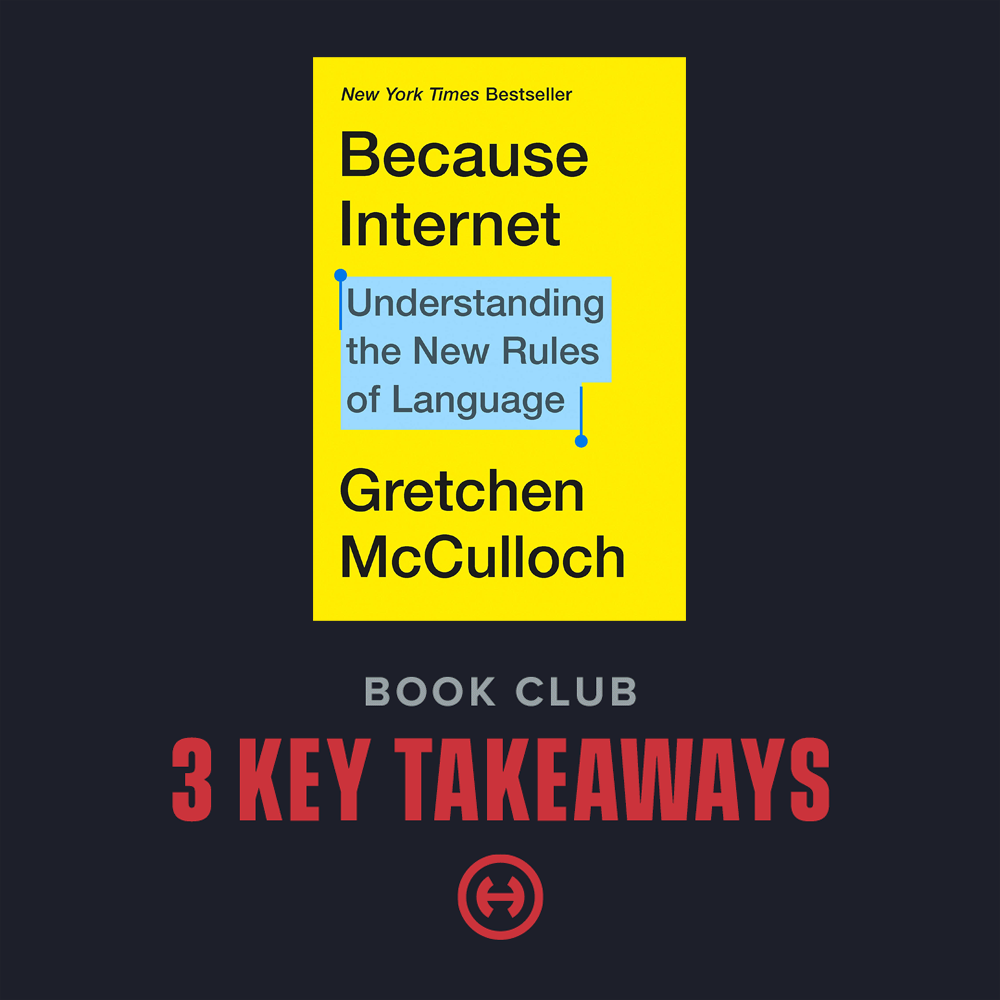At our latest agency book club, we discussed “Because Internet: Understanding the New Rules of Language” by Gretchen McCulloch. We encounter the flow of language in the most likely and unlikely of places. At school, in a doctor’s office, at the annual family gathering and most frequently nowadays: on the internet. At each encounter, the language we chose to use adapts to our environment – and the internet does it quickly and masterfully on a global scale. Internet writing is different. It’s unedited, unfiltered and so wonderfully mundane. If you’re ready to read and dive into a deeper understanding of the ebbs and flows of internetspeak and how it changes our everyday language, consider picking up a copy here. If not, here are three key takeaways.
- The Good, the Bad and the Unedited
With the proliferation of words and slang across the internet, our language has fundamentally changed. We communicate through writing so frequently, be it an IM, email or text, that our writing has changed. Gone are the days of the long phone conversation or beautifully composed handwritten letter. Our writing has become punchy, short and grammatically fluid, and is not beholden to the almighty spell check. It has become instantaneous in both absorption and response. While this style of writing can feel more personalized, it can also be misinterpreted and would certainly not hold up to the grammatical integrity of the red pen. - Internet People
The language we choose to use on the internet is indicative of what kind of “Internet People” we are. McCulloch breaks this down into three main waves: Old/Full/Post Internet People. Our online language was formed and shaped by the needs of what you used the internet for in your formative years. Were you on the internet to browse tech forums and get up to date on the latest jargon? Did you spend your formative internet years chatting with friends on AIM and Myspace? Perhaps your bestie is someone you’ve never even met IRL and found through your For You page? The language decisions we make both on the internet and, increasingly, in the real world are affected by our formative online language years. So what you were doing and where you were doing it on the net shaped your internet language. If you can read ICYMI and immediately understand what it means … you might be “Internet People.” - Emojis Are King
Emojis are popular amongst all Internet People because they emphasize an expression. When we write, what we ultimately want is for our writing to be fully capable of expressing exactly what we want to say … and how we want to say it. While the English language holds many different means of transport for what we want to say, emoji personify our intentions in a way that is practical, easy to use and just downright fun. Emojis, emoticons and gifs all accomplish multiple communication styles in one engaging and interesting way. And it can be universal! It represents a gesture in our writing in a way no formation of letters can. 🤓
Language constantly changes. Before the internet, the spread of subcultures was slow-moving. Internet has put language’s evolution on steroids. We are more fearless in writing beyond the red pen – but also, are we more fearful of cultural judgment? Of trying to seem “in” when what we’re saying is out of date? When language lived in books, it was static and authoritative. But a network of language, such as the internet provides, is flexible and strengthened by each subsequent generation as it connects and grows with the times and old words wither away. No longer linear and finite, the internet has irrevocably changed how we communicate.
Interested in learning more about connecting with Internet People through online language? Email Dana Arnold at darnold@hiebing.com to set up a call.
